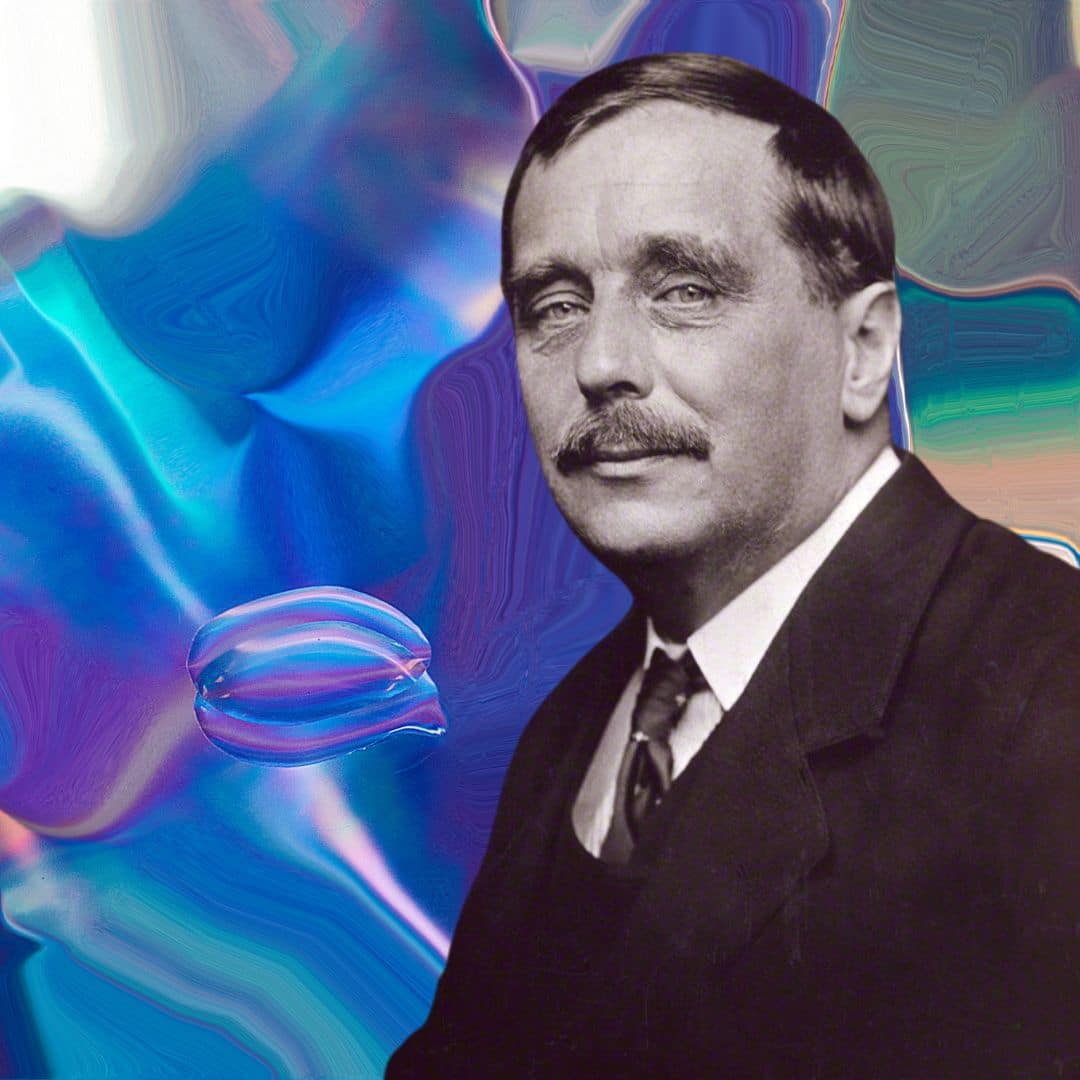If you’re a fan of science fiction books, you’ve probably at least heard of Herbert George (H.G.) Wells. People often refer to him as the father of the science fiction genre.
Not only did he influence science fiction as a genre, but he actually wrote about a lot of real-life technology that we have today.
Some people say that science fiction predicts technology. Others say that science fiction influences how technology advances. Either way, H.G. Wells was way ahead of his time.
As a science fiction author, I am fascinated by this stuff. So, let’s look at 5 times H.G. Wells predicted technology.

5 Technology Predictions By H.G. Wells
1. Organ transplantation
In The Island of Dr. Moreau (1896), Wells explores the morality of surgically modifying animals to be more like people. This novel is an early hint at organ transplantation and genetic engineering.
The first successful real-life organ transplant was performed in 1954. This kidney transplant happened 58 years after H.G. Wells wrote about it.
2. Laser and chemical weapons
War of the Worlds (1898) is one of the earliest examples of a novel about alien invasion. The book introduced the concept of weapons similar to modern lasers and the use of chemical warfare.
The first real-life laser was successfully tested in 1960. Chemical weapons were first developed in the early 20th century, but were first used in warfare during World War I (1914-1918). No alien invasion needed.
3. Military aviation & automatic doors
In When The Sleeper Wakes (1899), Wells writes about flying machines in combat and the convenience of automatic doors. Both of these are commonplace today.
In World War I, we saw the first use of military planes, a little over ten years after they were first invented. Automatic doors didn’t come along until 1954, when they were invented by Americans Dee Horton and Lew Hewitt.
4. Atomic bombs and nuclear propulsion
By far, this is one of the most alarming predictions from H.G. Wells. In The World Set Free (1914), he talks about a weapon that is more destructive and uncontrollable than anything mankind had seen before. At the time, Wells actually had knowledge of atomic physics.
Physicist Leo Szilard, who patented the idea of nuclear chain reaction, even read Wells’ book in the same year the neutron was discovered. Not only did Wells predict atomic bombs, but actually may have helped to create them.
Nuclear weapons were later developed during the Manhattan Project in 1945.
In the same novel, Wells also hinted at the concept of nuclear propulsion. This became a reality in 1954 when the nuclear submarine Nautilus was launched.
5. Email and voicemail
Men Like Gods is a novel about a man who gets transported to another world known as Utopia. Citizens of the land communicate through devices that are weirdly similar to modern email and voicemail.
In real life, email and voicemail didn’t come around until the 1970s, around 50 years after Wells wrote about this technology.

Leave a Reply